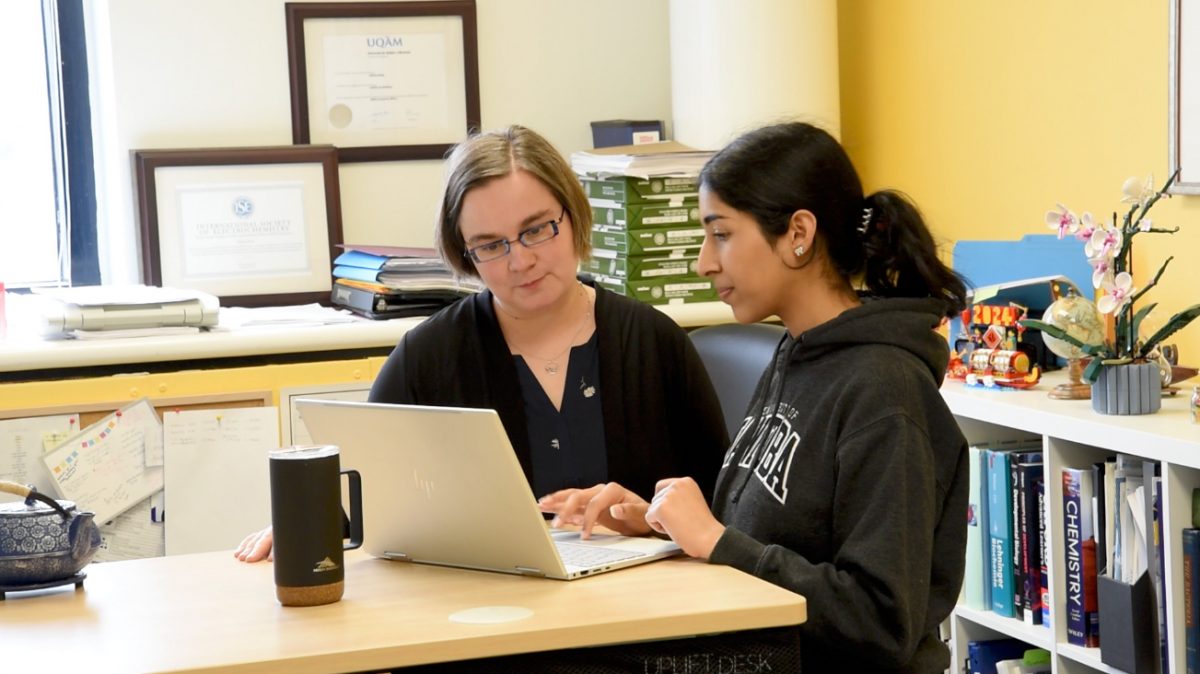
From left to right: Dr. Sabine Kuss, associate professor and associate head (graduate) at the Department of Chemistry, Shubhneet Thind, Microbiology undergraduate student
Dr. Sabine Kuss on receiving the Combination Merit Award 2023
Dr. Sabine Kuss, associate professor and associate head (graduate) at the Department of Chemistry, recently received the Combination Merit Award 2023. She is among the three faculty members from Science who have received Merit Award 2023 in Life Sciences, Natural Sciences and Engineering (Dr. Kenneth Jeffries for Research, Scholarly Work and Creative Activities and Dr. Susan Cooper for Service).
Join us as we talk with Kuss to learn more about her work and the impact she hopes to make.
How does it feel to receive the Combination Merit Award 2023?
It is wonderful to be recognized by the 2023 Joint UM/UMFA Merit Award. At UM, we have many deserving faculty members who work hard to maximize the quality and environment of learning for our students and do phenomenal research, and I am grateful for being selected this year. I want to genuinely thank my team members for their dedication.
Tell us about the importance of your work.
Our research was internationally recognized through keynote lectures, award nominations and publications. For example, published in Proceedings of the National Academy of Sciences (PNAS), our work demonstrates that electrochemistry can quantify a disease called cytochrome c oxidase deficiency in newborn baby tissue cells. This disease is currently untreatable, but by developing new methods that can detect this disease quickly after birth, we hope to improve the life quality of affected families in the future. In fact, cytochrome c oxidase deficiency can lead to death of young infants, but if it is detected and addressed quickly, affected individuals will live a close to normal life. Other work from last year demonstrates that electrochemistry can differentiate between pathogens that respond to antimicrobial or chemotherapy treatment, which led to the creation of a startup company.
What is your vision and hope for the future of your field?
Research is one way to propel science forward, but I am also a strong advocate for equity, diversity, inclusion and accessibility (EDIA). The benefits of EDIA considerations are more and more recognized in Canada and on a global scale. I believe EDIA education is key to a modern and efficient scientific community. Our department has taken the leap to integrate EDIA into the graduate student curriculum. Our chemistry students now design their EDIA curriculum by selecting the most meaningful workshops (for example, through GradSteps) for themselves as part of their MSc and PhD programs. I am proud to be part of our energetic Department of Chemistry, and I also want to thank my colleagues who make my work so enjoyable.






